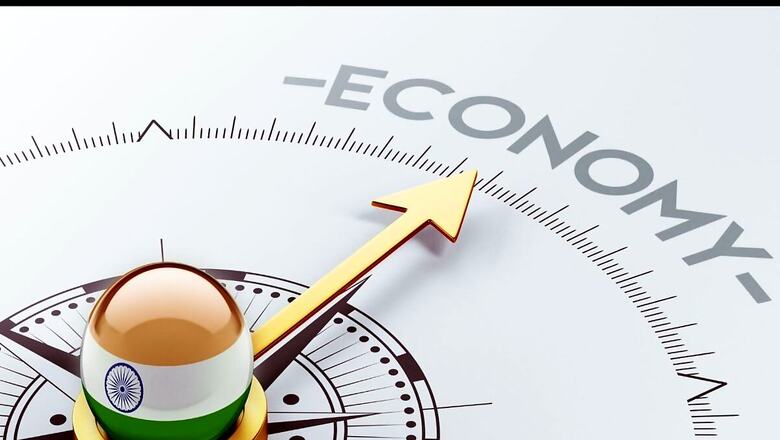
views
India’s macroeconomic management has been stellar despite global challenges, and the country’s economy appears poised to sustain its growth in a more durable way than before, the finance ministry said in a report released on Thursday.
“Despite unprecedented global challenges in the last few years coming on top of balance sheet troubles in Indian banking and non-financial corporate sectors, macroeconomic management has been stellar. It contributed significantly to enhancing India’s macroeconomic stability and set India on a quicker recovery path than has been the case in other nations,” the finance ministry said in its Annual Economic Review For May 2023.
It also said investments in supply-side infrastructure raise the possibility that India can enjoy sustained economic growth longer than it has been able to in several decades. Strong balance sheets and digital advancements could lead to better credit decisions allowing India’s financial cycle to sustain for longer periods before encountering the challenge of bad debts.
“Thus, India appears poised to sustain its growth in a more durable way than before. Nonetheless, it is no time to rest on laurels nor risk diluting the painstakingly and consciously achieved economic stability.
If we are patient, the rising tide will lift all boats as it has begun to,” the report said.
It said the Indian economy has carried the momentum from FY23 into the current fiscal year. High-frequency indicators paint a healthy picture of the state of the economy. Urban demand conditions remain resilient, with higher growth in auto sales, fuel consumption and UPI transactions.
“Rural demand is also on its path to recovery with robust growth in two and three-wheelers sales. GST collections and Purchasing Managers’ Index for the manufacturing and services sector continue to expand. On the global front, the uptick in economic activity during the first quarter of 2023 has continued in the second quarter as well, as evident in the expansion of the global Composite PMI,” the report added.
The ministry also said factors that can constrain the pace of growth include escalation of geopolitical stress, enhanced volatility in global financial systems, sharp price correction in global stock markets, a high magnitude of El-Nino impact, and modest trade activity and FDI inflows owing to frail global demand.
“Should these developments deepen and dampen growth in the subsequent quarters, the external sector may challenge India’s growth outlook for FY24,” the report added.
On inflation and interest rates, the report said that an increase in repo rates has worked for India, enabling a 40-45 per cent of transmission in lending and deposit rates by the end of FY23. This, coupled with fiscal and administrative measures by the government, has been adequate to ease inflation down into the target range while ensuring that domestic demand is not crushed. Consequently, the growth of credit rose in FY23, feeding the elevated demand.
According to the latest data, India’s retail inflation in May 2023 declined to a 25-month low of 4.25 per cent as food prices eased.
The country’s gross GST collection in June 2023 jumped 12 per cent year-on-year to Rs 1,61,497 crore. It is for the fourth time, the monthly gross GST collection has crossed the Rs 1.60 lakh crore mark. In May 2023, the gross GST collection had stood at Rs 1,57,090 crore.




















Comments
0 comment